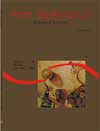The traditional ichthyological knowledge of fishermen from the city of Barra, median region of San Francisco, state of Bahia, Brazil
Abstract
This paper deals with the traditional ichthyological knowledge of fishermen’s community from the city of Barra, which is located in the west region of Bahia State, Northeast Brazil. These fishermen develop their usual activities at the edges of São Francisco and Grande rivers. Fieldwork was carried out from January to June 2000. A total of 15 informants (ten male and five female) were consulted through open and semi-structured interviews, with the aim to record both the cognitive (ethnotaxonomy, reproduction, behaviour, food ecology, habitat) and cultural aspects (restrictions to the fish eating and their use as folk medicine) towards the local fish species. Eighteen fish specimens were usually collected and identified, and they are deposited at the Laboratory of Ichthyology of the Feira de Santana State University. Results show that Barra’s fishermen still hold an important theoretical and practical knowledge that should be taken into account in the management, conservation actions, and sustainable use of the local fishing resources. As noted, men-made ecological problems such as predatory fishing and the introduction of exotic species, have been already affecting fishermen’s ordinary life both from the city of Barra and surroundings.Downloads
Download data is not yet available.
Published
2008-05-13
How to Cite
Costa Neto, E. M., Dias, C. V., & Melo, M. N. de. (2008). The traditional ichthyological knowledge of fishermen from the city of Barra, median region of San Francisco, state of Bahia, Brazil. Acta Scientiarum. Biological Sciences, 24, 561-572. https://doi.org/10.4025/actascibiolsci.v24i0.2360
Issue
Section
Biology Sciences
DECLARATION OF ORIGINALITY AND COPYRIGHTS
I Declare that current article is original and has not been submitted for publication, in part or in whole, to any other national or international journal.
The copyrights belong exclusively to the authors. Published content is licensed under Creative Commons Attribution 4.0 (CC BY 4.0) guidelines, which allows sharing (copy and distribution of the material in any medium or format) and adaptation (remix, transform, and build upon the material) for any purpose, even commercially, under the terms of attribution.
Read this link for further information on how to use CC BY 4.0 properly.
0.6
2019CiteScore
31st percentile
Powered by 

0.6
2019CiteScore
31st percentile
Powered by 











1.png)




3.png)













